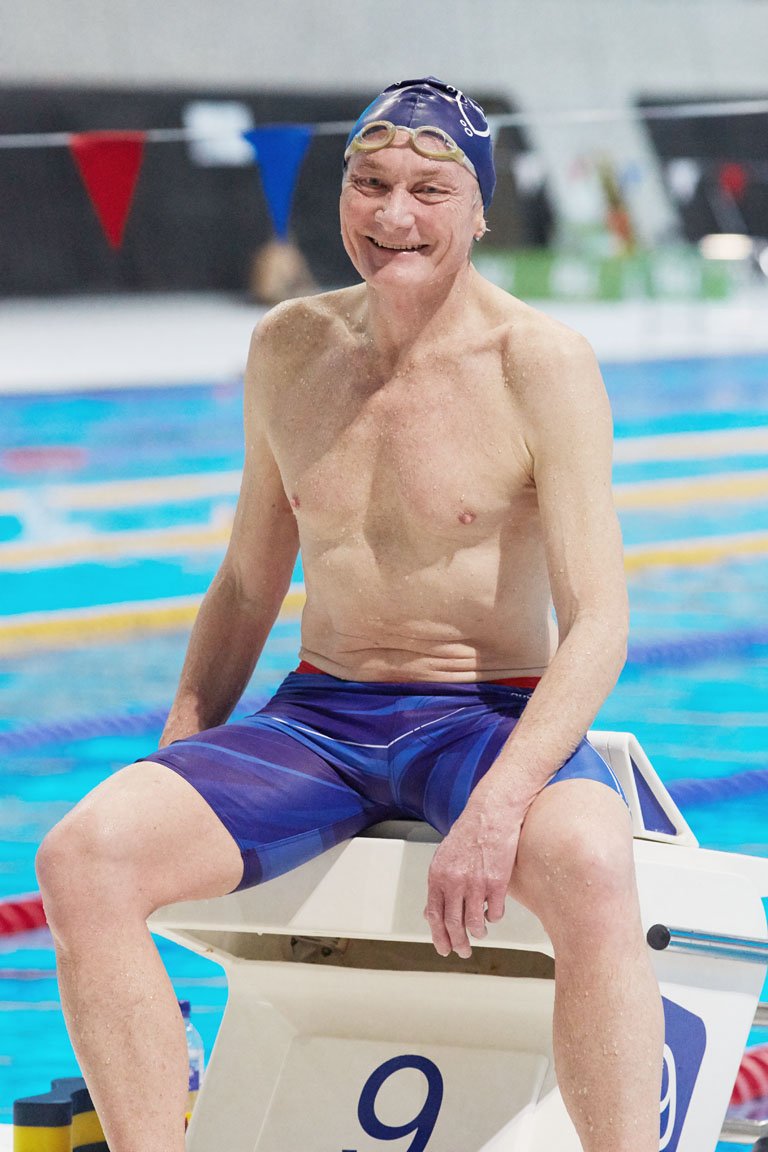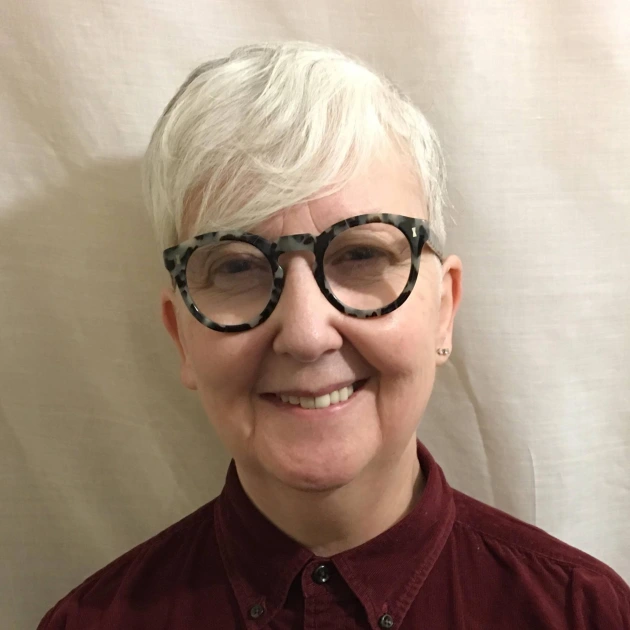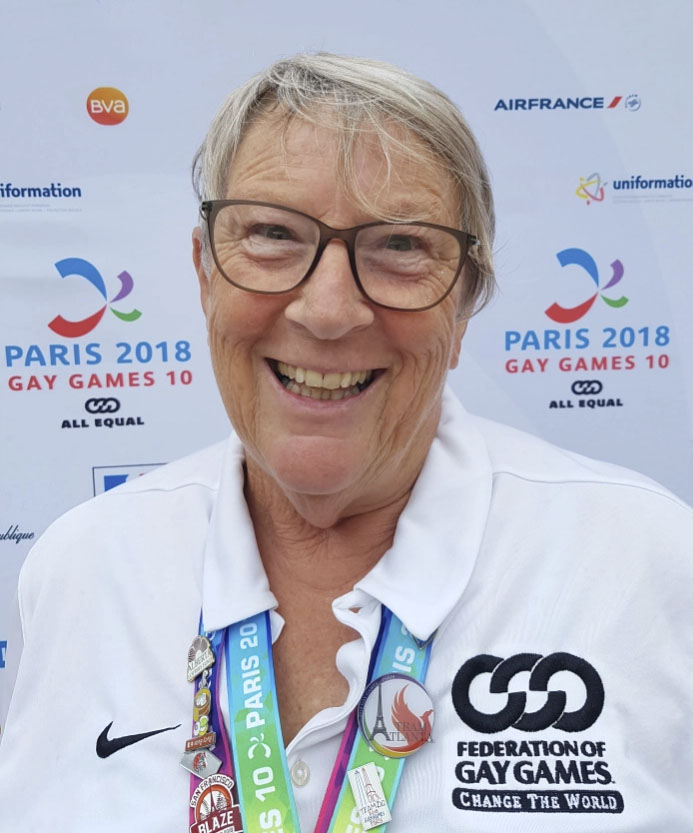Swimming for My Life
I was sixty-one when I joined Out to Swim in 2012. As a teenager in New Zealand, I’d belonged to the local swimming club. We had a key to the town outdoor pool and trained before school – only in the summer – doing kicking and pull, but mostly just swimming up and down. Our parents organised a swimming coach to sort out our style and technique and he also taught us butterfly – unheard of in our part of the world. I won the championship at our small rural high school and so thought myself a pretty good swimmer, going on to compete at University meets where I came last in everything. For the next forty years I’d go swimming maybe once a week, do twenty lengths and then get out.
I’d been on a round the world adventure with my partner getting as far as New Zealand. He died there suddenly and when I returned to the UK, my long-time friend, Vicki Carter, who was going to teach my partner to swim properly, suggested I join Out to Swim. I’ve always believed that joining a group is the best way to meet new people and I knew I needed some way of dealing with my bereavement, so I looked up the website, chose a session and headed for the first of three free introductory swims.
Of course, it was the wrong session and after forty years, I was out of condition. I still had some speed, but no stamina and had to take time out every few lengths. Swimming continuously for one hour was not possible so the coach suggested I got to a development session and come back when I was ready. These days people get assessed and sent to the correct session for their fitness and ability.
For me, swimming is the perfect exercise, aerobic and non-weight-bearing. Running has never suited me and with the beginnings of arthritis, it’s important to keep those joints moving. I’ve lost weight and being back to where I was at the age of twenty, find I’m getting admiring glances again. What more encouragement do I need?
Non-swimmers have a notion of our sport as being solitary and unsociable, saying ‘Don’t you get bored endlessly ploughing up and down the pool?’ There’s a lot to think about. ‘Are my arms entering the water at the right angle? How’s my rotation and am I kicking hard enough?’ The list goes on and there are always improvements to make. Counting the number of strokes per length or the number of lengths swum can be calming. I like to think of it as meditation, where the mind is emptied of all peripheral matters and there’s the added benefit of endorphins released by exercise to produce a great feeling of well-being. Swimming is a great stress buster and I kept training whilst moving house, traditionally the most stressful thing you ever do. Being in a club offers a range of social benefits from weekly after-session drinks, mid-winter plunges for the more eccentric and the Christmas party. At training, you get to know the regular people in your lane and the order in which everyone swims. Interaction is required, making it a group activity. So, ‘lonely?’ I don’t think so.
I persisted with the club and was hugely inspired by the Olympic and Paralympic games of 2012. The real breakthrough came for me when I raced at the UK Masters Nationals at Sheffield that year. It was nerve-wracking, the first time on those high blocks, but once the starting pistol went off, it all came flooding back. I was hooked on Masters’ competitive swimming at sixty-one. Masters competing was new to me and one of my memories is of two elderly swimmers bearing heart surgery scars, discussing their operations – inspirational. Entering a competition makes you part of the team and it’s also a great opportunity to get to know other members from other lanes.
In an era when longevity rubs up against quality of life, the older we get, the more important it is to keep moving and balanced. Early in 2014, a man who had recently moved into the 100 – 104 age group was going for the world 100 metre backstroke record. I was in heat two and we had to wait until he’d finished, and he got his record. I have no particular ambition to get to a hundred but I do want to be fit and active until the end.
It is also important for me to belong to a gay or gay friendly club because I feel more comfortable and relaxed. ‘Coming out’ is unnecessary as we have a shared vocabulary and culture. What is unusual for a gay organisation is the complete lack of age or ability discrimination. Young gay men in particular can be very ageist, so I was initially bemused to be smiled at and greeted by much younger guys and found myself suddenly valued to take a relay team into a higher aggregate age group to increases the odds of winning medals. There are not so many older swimmers and even fewer women so we get more points for racing. Not everyone is ready to or wants to race. Some members are non-competitive and just like to keep fit.
I’ve been to LGBT meets all over Europe and the rest of the world, a chance to travel, see new places and make international friends. I also win medals and in 2017 I achieved my ambition to get a bronze medal at the Nationals. I’m fitter now than I’ve ever been in my life, both physically and emotionally and that’s worth more to me than my drawer of medals. Swimming has now become a great passion with the added benefit of new team-mates and friends.
To find our other Out & Active Champions, click on their names.
Viv from BLAGSS
Christopher from Out To Swim
Nigel from Goslings London Badminton Club
Sarah from London Otters Rowing Club
Nash from London Royals Hockey
Tammy from London Royals Hockey
Peter from London Otters Rowing Club
Chris and Tina from Waltzing with Hilda and Pink Jukebox
Joanie from Hackney Women’s Football Club and The Federation of Gay Games
Ann from Gay Gooners
Sarah from Out To Swim
To find out more about the club click
Out To Swim
Champion interviews by Christopher Preston
Design for Out & Active by Laura Salisbury
Out & Active is kindly
supported by London Sport




